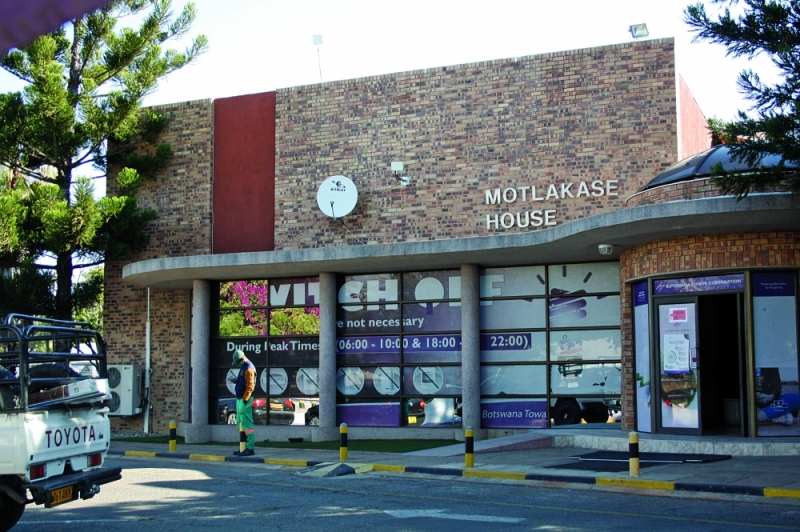BPC tariff request meets stiff resistance
Mbongeni Mguni | Monday August 15, 2022 06:00


The BPC’s has asked the Botswana Energy Regulatory Authority (BERA) to approve two consecutive tariff increases of five percent each for the 2022–23 and 2023–24 financial years.
The Corporation is citing below cost-reflective tariffs, pressure on its finances and the expected need for higher power imports next year.
BERA awarded the BPC tariff increases of 22% and three percent in the last two financial years. The Corporation was not awarded a tariff increase for the current financial year and had initially sought a four percent increase for 2023–2024.
At yesterday’s (Thursday) public hearing into the tariff request, Khoemacau Copper Mining officials, speaking on behalf of the mining sector, expressed their strong opposition to any quantum of increase for the BPC.
“Let’s be very clear that we don’t support that five percent,” said Khoemacau executive director, Boikobo Paya. “Under normal circumstances we could support it, if we didn’t have issues such as the war in Ukraine and the threat of a recession; so it’s a matter of timing. “Commodities such as copper and nickel are vulnerable right now and we must be sensitive to that. “We have to be talking about how to keep jobs within the mines and BERA we hope will consider this.”
Local mines account for just 12 of the BPC’s 547,000 users, but are expected to contribute about P1 billion or about fifth of the BPC’s revenues.
“Let’s be careful that we don’t kill the goose the lays the golden eggs,” Paya said. “BPC expects sales to mining to grow by 15% next year, but that may not happen because of the costs that we have.”
Paya, a former permanent secretary in the Ministry of Minerals and Energy, said while mines could not negotiate the costs of inputs such as fuel, the BPC could take a “hard-nosed” approach to the cost of coal from Morupule Coal, as a way of reducing its operational expenses.
He said the improved generation at Morupule B also gave an indication that the BPC should not be awarded any tariff request, particularly as government continued to provide millions of Pula in subsidies.
“The BPC also has emergency power which it can sell because it has been tough for some of our neighbours and they will take that power,” Paya said. “That is the innovation and creativity that BERA can help by not giving them that five percent.”
Richard Harriman, who runs the popular Consumer Watchdog group on Facebook, said any increase should be structured so that the poorest sectors of the community are protected. He stressed that in difficult financial times, the poorest communities are always hit the hardest and are disproportionally disadvantaged.
“Specifically, I believe that the lower domestic band, up to 200 units, should have no increase,” he said. “Any increase, if approved, should be in the upper band. “Let the more affluent support the poorer sections of our society.”
Under the BPC’s tariff scheme, domestic consumers are charged a lower rate when their usage is below 200 kilowatts per hour and more when consumption rises above that. The two-tier system is designed to protect the less privileged who tend to use lesser amounts of electricity.
Harriman also recommended that government should zero-rate Value Added Tax for all domestic solar equipment, saying this would encourage more installations and self-sufficiency.
“Let’s help people become more self-sufficient in power generation. “I would even go further to say that it should be compulsory for any new business construction to include solar power generation,” he said.
For his part, Thusang Butale, Botswana Federation of Trade Union general secretary, said the BPC had a tendency of cloaking its explanations of tariffs in technical terms that did not provide consumers with clarity about how tariff hikes would affect them.
“One thing barring many people from hearing these issues is because they are technical. “When we buy power for P100, how many units are we being given because if you talk about kilowatts per hour, most ordinary Batswana will not know what you are on about. “People focus on what they use to buy power.”
Former Botswana Nurses Union president, Obonolo Rahube was unequally unimpressed with the BPC’s request, saying between the Corporation’s improved generation and government’s subsidies, there was no need to further burden consumers, particularly as inflation was already at high levels.
“My understanding is that they are able to make money from exporting and that should meet the operating costs they are crying about,” he said. “They should not pass the buck to us as the common man on the street. “They have been getting funding from government and are asking for another P500 million which we believe can go to other pressing issues such as unemployment, which is high amongst youths.”
Laying its case for a tariff increase, the BPC said tariffs remained non-cost reflective and while the request should have been as high as 20% looking at the projected revenue and costs next year, the Corporation had restrained its proposals in light of the “current economic conditions”.
“The benefits of our improved performance particularly in generation and export of power will only be realised in the foreseeable future, simply because we have started from a negative cashflow base,” CEO, David Kgoboko said. “The current consumer tariffs do not cover the costs for generating, transmitting and distributing electricity. “Furthermore, the government subsidy, meant to cushion BPC against the impact of non-reflective tariffs has reduced over the years in line with the plan to migrate to a cost reflective tariff.”
BERA is due to make a decision on the tariff request in the coming months.
